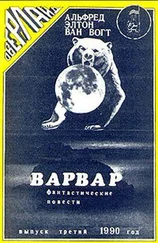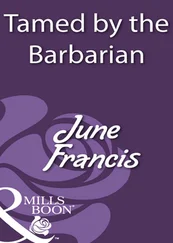The poems, the novels, the prayers are easily translatable and have an irresistible appeal.
Each time I read a Bengali writing, after ten lines I am caught.
There is in Bengali literature something true, entirely true, and it is neither the holiness nor the truth, but the inner life.
When you read a Bengali, you cannot help loving him.
He moves, he is important. You are not obliged to stoop. You do not perceive, in reading him, that slow rhythm that is so annoying in his films. I, for one, do not mind. But the most indulgent Europeans have never been able to sit through an entire performance. Yet, if interest in knowing came before the pleasure of seeing the beautiful, one would have a cinema in Paris where Bengali films were shown. Those who want to think would find something there.
1 Magic in the full sense of the word; the reading of the RAMAYANA TULSI DAS absolves from all sin .
This Tulsi Das, who had written the RAMAYANA and the adventures of HANUMAN and of the army of monkeys, though indeeed a poet, was put in prison by a king .
He meditated in his prison, from his meditation came Hanuman and an army of monkeys who sacked the palace and the city and set him free .
And now let us have a contest: Where is the European poet who could do as much? Who is there that can bring forth as much as a mouse for his defense?
2 (In English.)

The best-known son of the kingdom of England, Thomas Cook, starts out on the principle that, if you travel, it is in order to see great monuments, very old and well catalogued, and to stay quite near by in a great palace, very modern, provided with an excellent restaurant where you have a large number of dishes copiously served.
For he considers that no one would set out on a journey if he did not have a big appetite.
It is this same engineer-psychologist who declares with regard to Ceylon (a property that he has been managing for forty years, to everyone’s satisfaction. Even the prisoners there have the eyes of gazelles, and the woodcutters the arms of a young girl. He calls the tigers by their names):
‘On a surface of 25,331 thousand meters, it would be hard to find assembled a larger number of natural, archeological and picturesque marvels, etc.’
Now then, Thomas, no doubt, but make a final effort, please squeeze in a bit more.
The Cingalese walks reverently. He is reverent. One day, by mistake, I went into a corridor that led to a very large hall . Religious sentiment reigned here. At one end of the hall there was a crowd, motionless, contemplative. I went forward. They were watching a game of billiards.
One day I was passing in a rickshaw through a street in the native quarter. A clamor stopped me. I got down. The noise came from a Catholic church, with all its doors open. I went in. They were reciting litanies, with such faith, with such feeling, that it was extraordinary. From time to time one of them would go up and massage one of the glass cases enclosing a small statue of a saint. He would magnetize it (all the little statues were shut up in glass houses, otherwise by the end of a few days nothing would be left of them), so he would massage it, then pass on to the next, and then another of those present would get up and ingratiate himself in the same manner.
They were visibly at home. Several were wandering among the altars in the side aisles, with palpable adoration. They were fingering the altar-cloths, the flowers, the chandeliers, with devotion resembling addiction. To tell the truth, this religion seemed to suit them. In the temples of the Buddha, they have nothing to do.
A Cingalese, one Sunday, came to harass me on my bench. He wanted to explain to me the merits of Christianity. I replied with those of Buddhism. But he would not listen. The hope , said he, paradise with God immediately after death .

It need not be supposed that all the Cingalese are slow.
Some advance in regular, almost rapid strides.
If, however, they give an amazing impression of inertia, it is owing to their lack of gestures. They talk to you without using their arms. Their arms, well, they are reserved.
The trunk immovable, undisplaced.
Tall, slender, delicate, serious, a kind of human stilts, nothing aggressive in their gaze, which one encounters like a far-off horizon, absolutely restful.
Feminine and like women who are afraid of disturbing their beauty.
Not liking to displace their center, nor to have emotion.
At a popular picture house, I saw an old Western film. Well, not for an instant did I get the impression of movement, of emotion, nor even an American impression.
This, for an astonishingly simple reason, merely that the film was accompanied by a constant pulse of formidable beats of a tom-tom, bang, bang, bang, bang, through which the religious sounds of a harmonium tried to pierce.
No other film gave me that impression of eternity, of endless rhythm, of perpetual motion.
They rushed stupidly about in this film. Nevertheless, the film was motionless. It was carried away by an immensity greater than itself, like a cage of fighting cocks in an express train.

Another thing regarding the speed of the Cingalese. You have probably seen, at least in atlases, those superb names, long, marvelous serpents with drumlike vowels: Anuradhapura, Polgahawela, Paravanalankulam, Kahatagasdigilva, Ambalantola . Well, they say them so fast and so sweetly (they erase, rub out English, in the same way) that Anuradhapura makes something hardly more important than ‘amena.’ Excepting, however, the children.
Listen to them singing and reciting in school; here is the magnificent unfolding of the contemplative words, something that is well disposed, and well understood inwardly, as when the Russian recites his admirable polysyllabic words (but there it is the consonants that come out) and as the Greeks do also (the same love of redundancy, for the lengthening and the triumphant mastication of words).

The bat is not a bird, if you like. But it can give all of them points in flying. You would think a pigeon was paddling, that it was beating the water, it makes so much noise with its wings. The bat no one hears. One would think it was taking to the air like a sheet with hands.
With its long beak and its torpedo-boat head, the crow is a black poltroon. In India, a quarter of an hour before sunset, it becomes voracious and, risking everything, hurls itself upon a piece of bread given by a timid little girl. This temerity is brief, and soon it flies away swiftly toward its nest, a hard nest and made without taste. There are tens and tens of millions of crows in India.
Ten minutes later comes the bat, here, there, where? silent, bewildered, with wings that weigh nothing and do not even make a sigh in the air. You hear a humming bird; but a bat, no. And it never crosses a space in a straight line. It follows ceilings, corridors, walls, it coasts. Then it is on a branch and in a twinkling is hanging from it by its claws, as if to sleep. And the silent moon shines on it.

It often amuses one to look at birds. They go away, come back, circle about: tricksters.
That is not the parakeet’s idea of flying. Flying is the passage from one point to another in a straight line. Parakeets are always in a hurry, the rudder very straight (they have very long and strong tails), they go away without turning their heads, almost always two of them, neither wind nor shadows make them swerve from their course, and they chatter all the while.
Читать дальше














